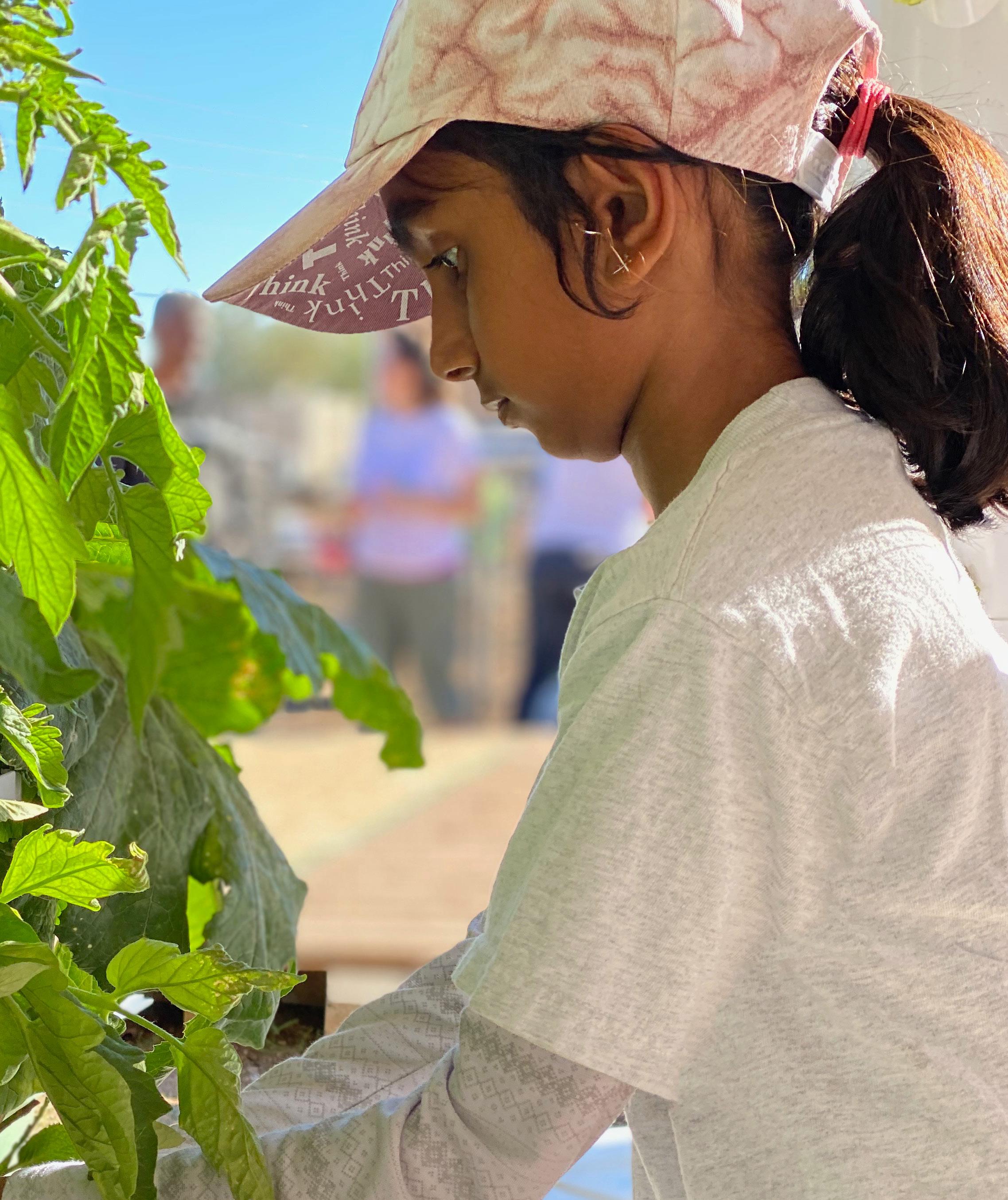
2 minute read
Understanding barriers urban residents face to growing their own food
Featuring KER community fellow Terra Rose Ganem from Brilliant Planet
Imagine a city that can grow its own food during times of food crisis. That’s the vision that Terra Rose Ganem holds for Phoenix residents. During the 2020 pandemic, our community saw a staggering increase in food insecurity, with food bank lines stretching farther than many had seen in their lifetimes. At the same time, many families established “victory gardens” as a way to help stave off possible household shortages in the future.
Advertisement
Ganem is the executive director of Brilliant Planet, an organization working to educate the public and build a community around growing and preparing fresh, organic food. Learning what barriers stand in the way of people becoming food growers would be a boon, allowing her and her colleagues to design more effective programs and initiatives.
As a fellow, Ganem administered a survey on urban residents’ values and perceptions related to food and growing to learn more about their hurdles and frustrations.
“Through understanding how people with means perceive growing in Arizona, I anticipated a gateway into understanding how we can better create a community-wide ecosystem,” she says. For Ganem, a resilient food system requires a diverse community of household growers supporting each other, encouraging new growers, and sharing their yields.
Arizona currently produces about 12% of the country’s fruits and vegetables, ranking third nationally. Meanwhile — before the COVID-19 pandemic — one in six Arizonans were experiencing food insecurity, a number expected to have risen dramatically this year.
Several of Ganem’s survey participants who tried to grow their own food reported feeling overwhelmed by large yields. They didn’t know how to preserve it, nor where they could go to share it with those in need. “We will be looking at how to bridge the gap between the plentiful food available in this state, including food that our community grows, and those who are in need,” Ganem says.
She notes that the fellowship helped her to see community resilience and her work through a new lens: “Resilience demands an interconnected community to find solutions during times of crisis in order to adapt, stabilize, and rise together.”
— TERRA ROSE GANEM, COMMUNITY FELLOW 2020




